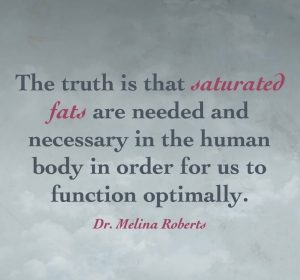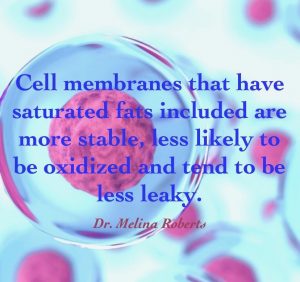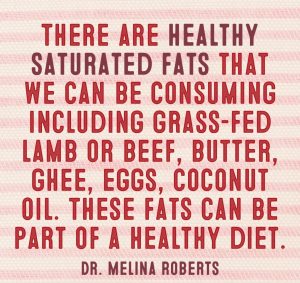This is a question I often get asked in my practice. Many people are still under the impression that saturated fats are bad for you, that they cause heart disease, that saturated fats will cause high cholesterol levels and high cholesterol causes heart disease. That was based on faulty research that was done years ago and has since been disproven, but people still hold on to that old paradigm of heart disease.
The truth is that saturated fats are needed and necessary in the human body in order for us to function optimally.
When researchers have done high resolution chromatography of arterial occlusions there is no saturated fats detected in those arterial occlusions. Which demonstrates that saturated fats are not the cause of heart disease.
Saturated fats are solid at room temperature.
From a biochemical perspective, saturated fats consist of single-bonded carbon molecules that are entirely saturated with hydrogen atoms.
Saturated fats have shown to optimize cholesterol levels. It helps to increase the HDL, the “good” cholesterol and helps to balance the LDL cholesterol. It helps to decrease the small, dense LDL particles that is more problematic and increase the large, puffy LDL particles, which are the healthy type of LDL. It helps to decrease Lipoprotein a, which is associated with heart disease.
Saturated fats are less prone to oxidation, since all the binding sites are saturated with hydrogen atoms, therefore they are more stable. Since they are more stable, they help to stabilize the cell membranes. Cell membranes that have saturated fats included are more stable, less likely to be oxidized and tend to be less leaky. So saturated fats actually help to strengthen the cell membranes.
Another benefit of saturated fats is that they can withhold higher heat, which means we can cook with saturated fats without them getting damaged or oxidized.
There are healthy saturated fats that we can be consuming including grass-fed lamb or beef, butter, ghee, eggs, coconut oil. These fats can be part of a healthy diet.
References:
https://openheart.bmj.com/content/5/2/e000871
https://www.bmj.com/content/361/bmj.k2139/rr-4
https://www.ncbi.nlm.nih.gov/pmc/articles/PMC1853362/




